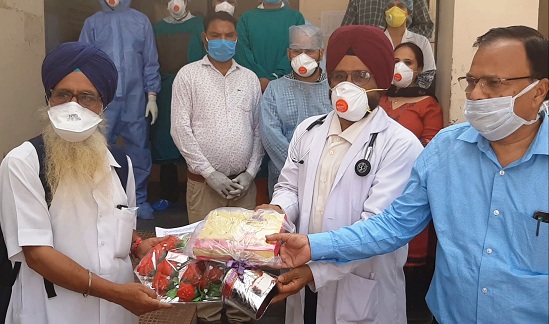Barnala farmer stops stubble burning as son alerts about ill-effects
Gurjit Singh/ royalpatiala.in/ Barnala
Following the persuasion of new generation, a Barnala farmer has decided to not to burn paddy stubble upon 60 acres of land and adopted In-Situ crop residue management process. After completing his B.Tech around 4 years back, Parbhat Kiran Singh made his farmer father, Ajaib Singh of Kothe Jalal Ke near Handiaya, aware of the ill-effects of setting fields on fire. Convinced with the views of his son, Ajaib Singh decided not to burn paddy stubble in his farm and rented a reversible MB plough from Jalandhar to mix the crop residue in soil. The in-situ management of stubble has also shown positive result as the yield of several crops increased on the farm of Ajaib Singh.
Ajaib Singh said, “It was not easy for me to directly give up the idea of burning the stubble to clear the field for next crop but my son encouraged me along with helping us in the fields. On the initial stage it was a big task for us but as soon as it started showing positive results, we also adopted it upon leased land.”
Ajaib Singh said that their family owned 13 acres of land and almost every year they rent around 50 acres for the cultivation of paddy, potato, onions, maize and other cash crops. He added that besides saving the environment, their decision has also helped them monetarily as it increased the yield and reduced the requirement of chemical fertilizers.
“Earlier, we put almost 5 bags of urea fertilizer and 2 bags of potash for potato crop. As we started mixing stubble in soil, we don’t use potash and consumption of urea has also come down to 2 bags. The yield of onions and potato has also increased and it has gone upto 50 percent in the case of onions which increased to 200 bags from the previous figures of 100,” Ajaib Singh added.
Meanwhile, Deputy Commissioner Barnala Tej Partap Singh Phoolka also lauded the efforts of Ajaib Singh and his son and appealed other farmers to do away with the unhealthy practice of stubble burning. He added that the residue management machines would also be provided to farmers involving a subsidy component ranging from 50 to 80 percent to stop the malpractice.













